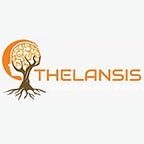Hepatocellular Carcinoma (HCC) — Market Outlook, Epidemiology, Competitive Landscape, and Market Forecast Report — 2023 To 2033
Hepatocellular Carcinoma (HCC) stands out as the predominant form of primary liver cancer, closely linked to the presence of liver cirrhosis. This malignancy typically emerges after prolonged periods of chronic liver disease, during which the liver’s regenerative capacity diminishes. The hallmark of cirrhosis is a decline in hepatocyte proliferation, leading to an accumulation of fibrous tissue and the degeneration of liver cells. This pathological process can eventually progress to the development of cancerous nodules. An overwhelming majority, ranging from 70% to 90%, of individuals diagnosed with HCC have a pre-existing history of chronic liver disease and cirrhosis. The key culprits in this scenario include chronic infections with hepatitis B virus (HBV) and hepatitis C virus (HCV), alcoholic liver disease, and nonalcoholic steatohepatitis (NASH). Notably, hepatitis B virus infection accounts for half of all HCC cases, while hepatitis C virus infection contributes to 25%. Unresectable HCC constitutes a clinically diverse group, encompassing patients at the intermediate stage (BCLC B) and advanced stage (BCLC C). This heterogeneity underscores the complexity of managing HCC, necessitating tailored approaches to address varying stages of the disease.
· In the United States, the incidence of hepatocellular carcinoma (HCC) across all payers is reported at 9.5 cases per 100,000 person-years. Notably, recent data indicates a higher incidence among Medicare and Veterans Affairs patients, highlighting potential demographic variations and emphasizing the need for nuanced strategies in healthcare delivery.
Thelansis’s “Hepatocellular Carcinoma (HCC) Market Outlook, Epidemiology, Competitive Landscape, and Market Forecast Report — 2023 To 2033” covers disease overview, epidemiology, drug utilization, prescription share analysis, competitive landscape, clinical practice, regulatory landscape, patient share, market uptake, market forecast, and key market insights under the potential Hepatocellular Carcinoma (HCC) treatment modalities options for eight major markets (USA, Germany, France, Italy, Spain, UK, Japan, and China).
KOLs insights of Hepatocellular Carcinoma (HCC) across 8 MM market from the centre of Excellence/ Public/ Private hospitals participated in the study. Insights around current treatment landscape, epidemiology, clinical characteristics, future treatment paradigm, and Unmet needs.
Hepatocellular Carcinoma (HCC) Market Forecast Patient Based Forecast Model (MS. Excel Based Automated Dashboard), which Data Inputs with sourcing, Market Event, and Product Event, Country specific Forecast Model, Market uptake and patient share uptake, Attribute Analysis, Analog Analysis, Disease burden, and pricing scenario, Summary, and Insights.
Thelansis Competitive Intelligence (CI) practice has been established based on a deep understanding of the pharma/biotech business environment to provide an optimized support system to all levels of the decision-making process. It enables business leaders in forward-thinking and proactive decision-making. Thelansis supports scientific and commercial teams in seamless CI support by creating an AI/ ML-based technology-driven platform that manages the data flow from primary and secondary sources.
Tags: Hepatocellular Carcinoma (HCC), Hepatocellular Carcinoma (HCC) market outlook, Hepatocellular Carcinoma (HCC) competitive landscape, Hepatocellular Carcinoma (HCC) market forecast, Thelansis, Primary market research, KOL insights, Competitive Intelligence (CI)
